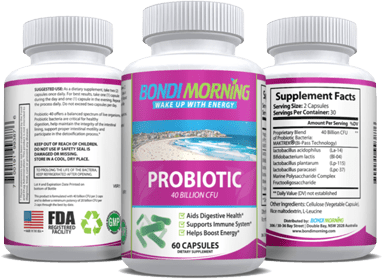
Who cares about bones, really? They are just something for our muscles to stick to, right?
While most of us do nothing to maintain the health of our bones, over 40 million people suffer from osteoporosis and the threat of weak and brittle bones. Consequently, do we need to ask why bone health is important?
Given that nothing stays the same in your body since day one, you may suspect that your bones are also subjected to developments of some sort. That would be true.
Bones grow and break down continuously as part of a natural and healthy cycle. But there’s a twist.
Up until you’re 30, your bones grow rapidly, and break down slowly. This leads to an increase in bone mass and strength. When you’ve reached 30, processes change, and you end up losing more bone mass than you gain.
The key here is to prepare your body for the “stage of losing” by preventing early on the loss of bone density. Otherwise, your body may develop osteoporosis, the condition which makes your bones easier to break.
So, what causes the loss of bone density?
1. A Lack Of Exercise Can Lead To The Loss Of Bone Density

Photo by pixabay.com
It may come as a shock to you, but exercise stimulates bones like it stimulates the muscles. The results are similar: both muscles and bones are stronger.
It’s also been observed in trial studies that certain types of exercise not only lower the amount of bone mass loss but improve bone density.
Physical activities like walking, running, and climbing the stairs are called weight-bearing aerobic exercises, and they are great for cutting down on the loss of bone density. Swimming and weight-lifting represent the second type of exercise, called strength and resistance exercises. The last ones are considered to be the most effective in improving bone density.
Bottom line is, bone health is substantially improved by doing physical activities a couple of times a week.
If you’re not the active type of person, here’s a tip. Tweak your "walking routine" by walking faster, and choosing the stairs instead of the elevator. You may just avoid deteriorating your bone health with age.
2. Smoking And Drinking Alcohol, The Enablers of Bone Fractures

Photo by pixabay.com
Did you know that women and men who smoke frequently are at a greater risk of bone fractures?
The links between smoking and bones breaking down are numerous. Smoking affects the transportation of blood to the bones and tissues, the body’s calcium absorption capacity, and hormone levels, thus reducing the production of estrogen.
When it comes to drinking alcohol, researchers come to the same conclusions. Alcohol interferes in the process of absorbing calcium and vitamin D - two important components of the bone tissue.
Drinking also intensifies the production of cortisol and parathyroid hormones. These hormones are responsible for the loss of bone density.
On the flip side, if you quit both of these pseudo-cool, yet very damaging habits, your bone health can restore quickly.
3. Ignoring The Nutrients That Make Up Strong Bones

Photo by pixabay.com
One mistake that hinders your efforts to maintain bone health is an imbalanced diet. That is because a variety of nutrients make up strong bones.
If you wonder what foods promote bone health, you need to know what nutrients benefit your bones.
Therefore:
Magnesium regulates calcium and vitamin D - the two essential components for a healthy bone structure (we’ll talk about them later in the article).
Phosphorus protects the bones from the effect of acidic foods.
Potassium shields the bones from the acids that result from bodily metabolic processes.
Vitamin A plays an important role in the creation of cells responsible for bone building and bone breakdown.
Zinc assures the mineralization of bones.
Vitamin C takes part in the process of collagen formation.
Healthy vitamin K levels are associated with strong bones and a reduced risk of fractures.
So, the right diet for bone health calls for diverse meals. You can do that by including all sorts of foods, from legumes and fruits to fish and nuts.
4. Bowing Down to Calcium Deficiency

Photo by pixabay.com
Bones are your body’s biggest calcium storage unit. The fact is, your body cannot produce calcium. It needs to be provided via the food you eat and the supplements you take, so it can later be used to improve bone density and growth.
A low intake of calcium puts you at risk by reducing bone density and increasing the risk of bone fractures.
The not-so-fun part is, your body (and everyone’s body) is bad at absorbing calcium from what you eat. Around 15% to 20% gets absorbed from foods, out of which 99% goes to the bones and 1% to the rest of the body.
Check the table below to find out how much calcium you need (on average) to prevent the loss of bone density and other health problems associated with low-calcium diets:
|
RDA Recommendations |
RDA Recommendations |
||
| Women (19-50) | 1000 mg/day | Men (19-70) | 1000 mg/day |
| Women (50+) | 1200 mg/day | Men (70+) | 1200 mg/day |
Don’t know where to take your calcium from? Here are some foods brimming with calcium:
- Dairy
- Leafy green vegetables (kale, spinach)
- Salmon, sardines
- Tofu, edamame
- Lentils, beans
However, you should be aware that filling up on calcium won’t reduce the risk of fractures. Calcium and vitamin D are the Sherlock Holmes and Dr. Watson of osteoporosis prevention.
This leads us to the next section.
5. Vitamin D Deficiency Is Not a Good Match for Healthy Bones

Photo by unsplash.com
A very compelling study on the link between bone health and vitamin D revealed how the structure of the bone was modified by a lack of vitamin D, resulting in brittle bones and a higher risk of fractures.
In short, the loss of bone density is strongly associated with diets that don’t provide sufficient vitamin D.
But why does your body need vitamin D?
The “sunshine” vitamin is essential for absorbing calcium in the gut, but also for regulating the concentrations of phosphate and calcium, while contributing to healthy bones, teeth and muscles.
The recommended intake of vitamin D for your bone health to be guaranteed can be found in the table below.
| Age category | Intake in International Units (IU) |
| Children (under 12 months) | 400 IU |
| Children and teens (1-18 years) | 600 IU |
| Adults (19-70) | 600 IU |
| Adults (71+) | 800 IU |
Now let’s see some foods that promote bone health by being good sources of vitamin D.
From early Spring up until September, you should get enough vitamin D from direct sunlight.
During fall and winter, shift towards dietary sources, such as oily fish, mushrooms, egg yolk, red meat, fortified foods (like cereal), and supplements (yeah, you heard it).
6. Not Knowing What Vitamin K Can Do For Your Bone Health

Photo by pexels.com
You may have heard over and over again about how the health of your bones rests on your intake of calcium and vitamin D, but did anyone ever tell you how important vitamin K is for making your bones strong?
Vitamin K, famous in the context of blood clotting, is a key player in the metabolism of bones. Several studies indicate that a lower vitamin K intake is related to the loss of bone density and to higher risks of fractures.
How much vitamin K do you need?
For it to be effective in strengthening your bones, each kilogram of your bodyweight requires 1 microgram of vitamin K. This means, if you weigh 60 kilograms, your daily vitamin K intake should be 60 micrograms.
What foods provide vitamin K?
Leafy green vegetables, such as kale, spinach and Brussels sprouts are an important source of vitamin K. You can also find vitamin K in fermented foods, such as natto.
Should You Take Supplements For Bone Health?

Photo by unsplash.com
Trying to include the entire complex of nutrients and minerals responsible for healthy bones may seem tricky to you, and indeed it can be a hard task if you’re not accustomed to eating healthy. So, this is where bone health supplements come in.
Make no mistake, we’re not encouraging you to give up on kale and fish! However...
You can regain your bone density by remedying the deficiencies that affect your bone health. We thought this through and created a blend of vitamin D3 and K2, so your bones won’t have to suffer.
In Light of These Bone Health Facts….

Photo by pixabay.com
… you can make up your own conclusions about how well you care for your bone health.
In short, you could be damaging your bones by not working out, by smoking and consuming alcohol, by not feeding your body correctly, and especially by depriving your body of calcium, vitamin D, and vitamin K.
Keep in mind that all the points we touched on in this article indicate ways in which you weaken your bones. Use this as a guide to help you prevent osteoporosis and other health issues related to bones that develop throughout your life.
Why not visit our shop and begin taking care of your bones today?

30 Day Money Back Guarantee
We're confident in the quality of our products. That's why we back them with our 30-day guarantee. If you try a Bondi Morning product and you're not satisfied for any reason, simply contact our customer support team for a hassle-free refund.

Subscribe To Our Newsletter & Save 10% On Your First Order
How Severe Is Your Lack of Energy?

Ready To Wake Up Every Day Feeling Turbo-Charged?
Take our 3 minute quiz and discover how to catch your energy wave each morning.

 Shop Our Products
Shop Our Products